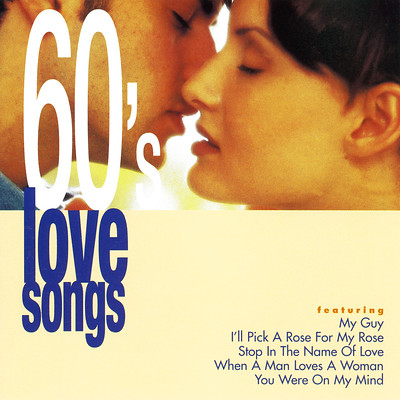If you’ve ever turned on the radio or streamed your favorite playlist, you’ve probably noticed that a vast majority of popular songs are about love. From heartbreak ballads to upbeat anthems, love seems to be the universal theme that dominates the airwaves. But why is that?
In this article, we’ll explore the reasons behind the prevalence of love songs in popular music. We’ll delve into the neuroscience of love and music, and how they intersect to create powerful emotional experiences.
We’ll also examine the cultural and societal factors that contribute to the popularity of love songs, and the impact they’ve had on music history.
Whether you’re a hopeless romantic or a skeptic of love songs, you’ll find something informative and thought-provoking in this guide to why all popular songs are about love. So, grab your headphones, get ready to feel all the feels, and let’s dive into the world of love and music.
The Power of Love in Music
Love as a Universal Experience
Love is a universal experience that everyone can relate to. It is a powerful emotion that has been the subject of countless songs throughout history. Love songs are popular because they speak to a wide audience and tap into a common human experience.
Whether it’s the excitement of falling in love or the heartbreak of a failed relationship, love songs capture the essence of what it means to love and be loved.
The Emotional Connection of Love Songs
Love songs have a unique ability to evoke strong emotions in listeners. They can make us feel happy, sad, nostalgic, or even empowered. The emotional connection that people have with love songs is what makes them so powerful. When we hear a love song that resonates with us, we feel as though the artist is speaking directly to us and our experiences.
Love songs have the ability to transport us back in time and remind us of past loves or inspire us to find new ones. Love songs are also popular because they are often easy to sing along to and have catchy melodies.
This makes them perfect for radio play and for people to sing along to at concerts or in the car. Love songs have the power to bring people together and create a sense of unity around a shared experience.
In conclusion, the power of love in music is undeniable. Love songs are popular because they tap into a universal experience and evoke strong emotions in listeners. They have the ability to transport us back in time and inspire us to find new love.
Whether it’s a power ballad or a catchy pop tune, love songs will continue to be a staple in the music industry for years to come.
The Marketing of Love
The Commercial Success of Love Songs
Love is a universal emotion that has been explored in music for centuries. However, in recent years, the music industry has seen a significant increase in the number of love songs being produced and promoted. This is because love songs have proven to be incredibly marketable and commercially successful.
Songs that revolve around love or heartbreak are considered the most relatable to listeners through their personal experiences with love, making them easier to promote and sell.
The popularity of love songs can also be attributed to the fact that they are often catchy and easy to sing along to. This makes them ideal for radio play and streaming services, which rely heavily on listener engagement and repeat plays to generate revenue.
The Influence of Record Labels and Producers
Record labels and producers play a significant role in the promotion and marketing of love songs. They are responsible for identifying and developing new talent, as well as shaping the sound and image of established artists.
In many cases, record labels and producers will actively seek out artists who are capable of writing and performing love songs, as they know that this will increase their chances of commercial success.
Record labels and producers also have the power to influence the content of love songs. They may encourage artists to write songs that are more commercial or radio-friendly, which can sometimes result in a dilution of the original artistic vision.
Additionally, record labels and producers may use marketing strategies to create a sense of urgency or emotional connection with listeners, such as releasing songs around Valentine’s Day or promoting them heavily on social media.
To sum up, the marketing of love songs is a complicated and diverse process that encompasses various factors, such as the song’s commercial feasibility, the impact of record labels and producers, and the emotional connection of the music with the audience.
While some may argue that the prevalence of love songs in popular music is a sign of artistic stagnation or a lack of originality, others see it as a reflection of the enduring power and universality of love as a theme in human experience.
The Human Need for Love
Love is a universal human experience that has been explored in art, literature, and music for centuries. It is a complex emotion that can take many forms, including romantic, familial, and platonic. But why is love such a popular topic in music, particularly in popular music?
The Psychological and Sociological Implications of Love
Psychologists and sociologists have long studied the role of love in human behavior and relationships. According to Maslow’s hierarchy of needs, love and belongingness are fundamental human needs that must be met before individuals can achieve self-actualization. Love, in this sense, is seen as a necessary component of human happiness and fulfillment.
Moreover, love has been found to have numerous psychological and physiological benefits. Studies have shown that love can reduce stress, improve mood, and increase feelings of well-being. It can also improve physical health, including cardiovascular health and immune system function.
The Role of Love in Our Lives
Beyond its psychological and physiological implications, love plays a crucial role in our lives. It is a source of support, comfort, and connection that can help us navigate the challenges of life. Love can also inspire us to be better people, encouraging us to be more compassionate, forgiving, and understanding.
Love takes many forms, from the passionate romance of a new relationship to the enduring bond of a lifelong friendship. It is a complex emotion that can be both joyful and painful, but it remains a fundamental part of the human experience.
The Evolution of Love Songs
Love Songs Throughout History
Love songs have been around for centuries, with examples dating back to ancient Greece and Rome. In these early times, love songs were often written to praise the gods and goddesses of love, such as Aphrodite and Cupid. As time went on, love songs evolved to include more personal expressions of love between individuals.
During the Middle Ages, troubadours and minstrels sang about courtly love, which was often unrequited and idealized. These songs were popular among the aristocracy and were often performed at courtly gatherings and feasts.
In the Renaissance era, love songs became more complex and sophisticated, with composers such as William Byrd and John Dowland creating intricate vocal and instrumental pieces that explored the depths of human emotion.
The Modern Era of Love Songs
In the 20th century, love songs became a staple of popular music, with artists such as Frank Sinatra, Elvis Presley, and The Beatles creating timeless classics that continue to be beloved today.
Love songs in this era often focused on romantic love, with lyrics that expressed the joy and pain of falling in love, as well as the ups and downs of relationships.
In the 1980s and 1990s, love songs took on a more sensual and explicit tone, with artists such as Prince and Madonna pushing the boundaries of what was considered acceptable in popular music.
Love songs in this era often explored themes of sexuality and desire, and many were accompanied by provocative music videos that further emphasized these themes.
The Future of Love Songs
In the 21st century, love songs continue to be a dominant force in popular music, with artists such as Adele, Ed Sheeran, and Taylor Swift creating chart-topping hits that resonate with audiences around the world.
Love songs in this era often explore themes of vulnerability and authenticity, with lyrics that are deeply personal and introspective. As technology continues to evolve, it’s likely that love songs will continue to change and adapt to new forms of media and communication.
From social media to virtual reality, the ways in which we express and experience love are constantly evolving, and love songs will undoubtedly continue to reflect these changes in the years to come.







